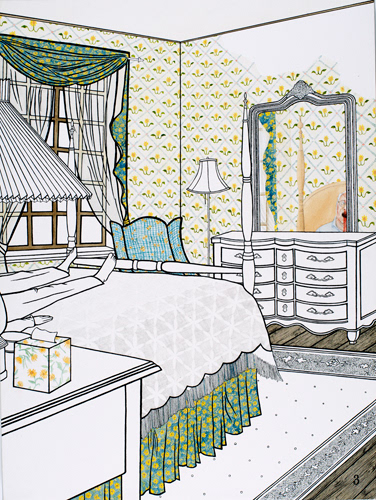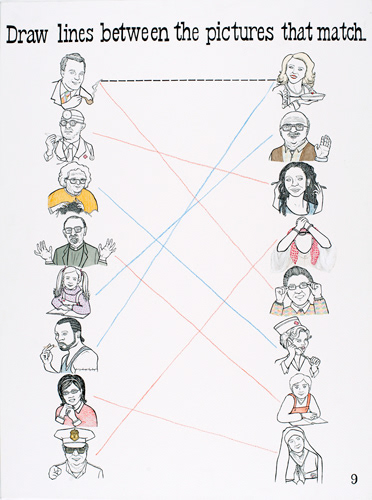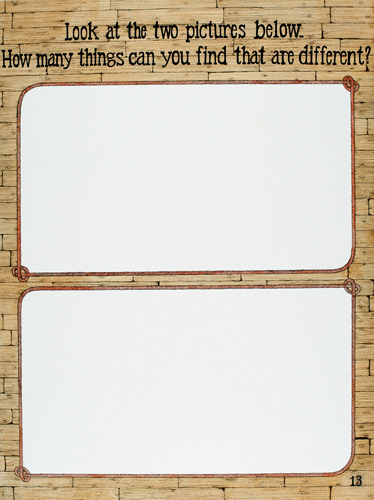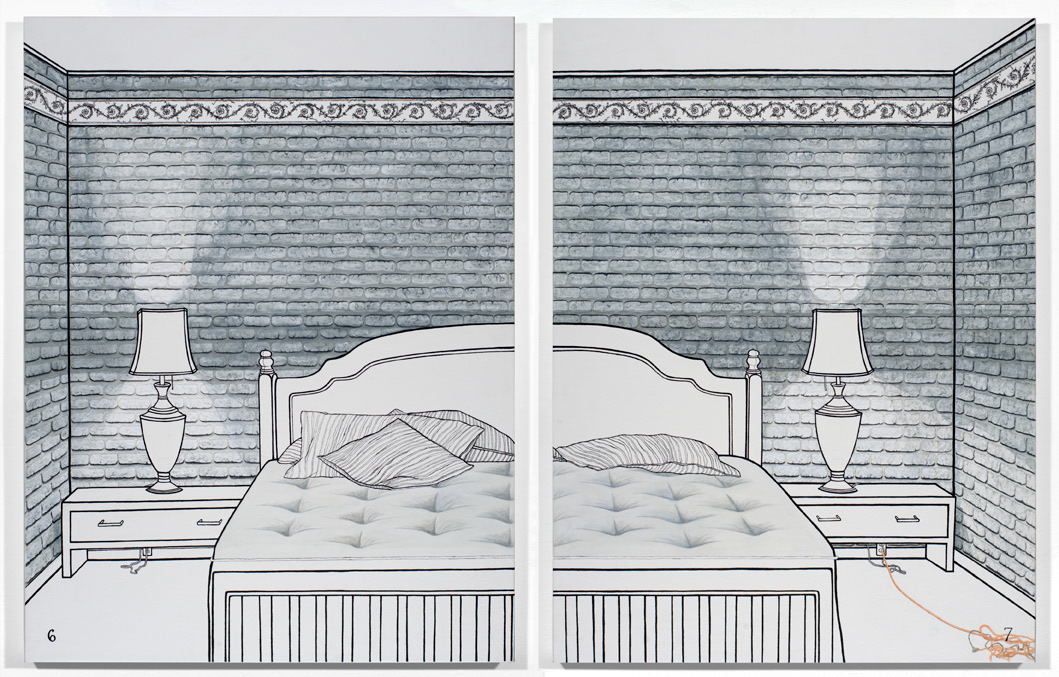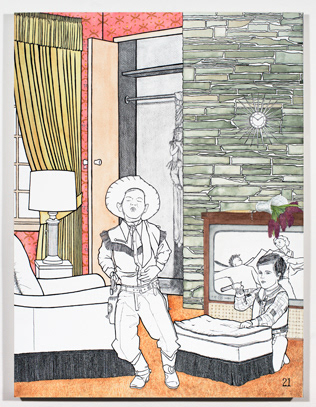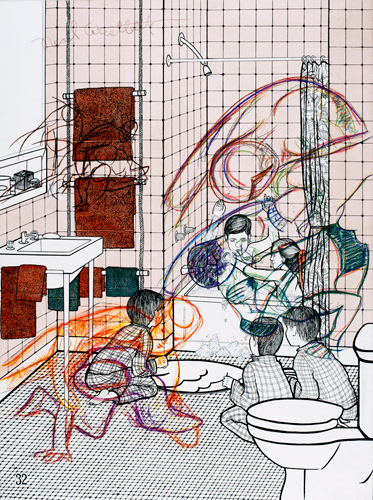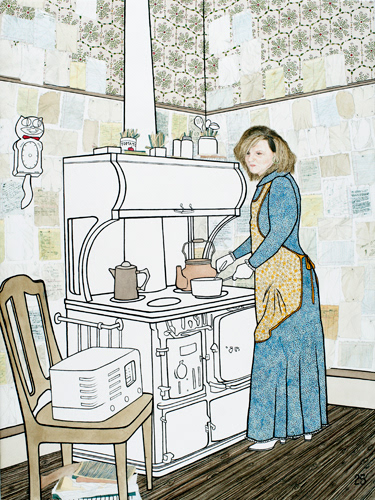Coloring books emerged in the United States as part of a process to democratize art. Regardless of students' background, educators concluded that they could benefit from art education as a means of enhancing their understanding of the tangible as well as developing their cognitive abilities—improving skills beneficial to their growth into respectable Americans. Within the boundaries of these books, the concept of normative family behavior is conveyed to generations of youth.
Emulating the coloring book structure, The Way We Never Were investigates the emotional, relational, and mnemonic aspects of the American familial ideal. Through a controlled perversion of these seemingly safe environments, the viewer is invited to question the intent behind an ideal American existence.
Emulating the coloring book structure, The Way We Never Were investigates the emotional, relational, and mnemonic aspects of the American familial ideal. Through a controlled perversion of these seemingly safe environments, the viewer is invited to question the intent behind an ideal American existence.
